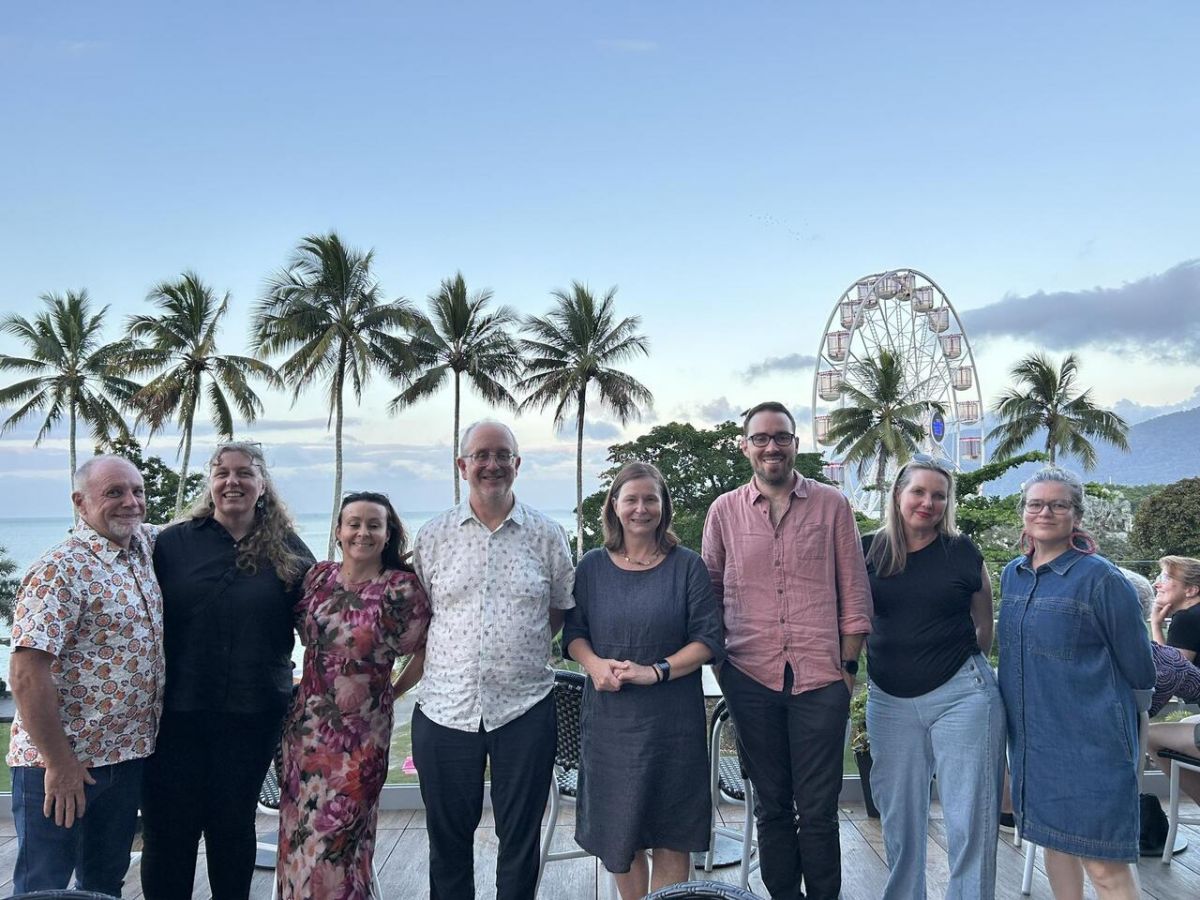Celebrating 25 Years of Regional NRM
The 9th National Natural Resource Management Knowledge Conference, held September 8–12 in Cairns, marked a significant milestone, 25 years since Australia adopted the regional natural&...

A powerful call to action emerged from the recent LabNorth workshop held in Cairns, where artists, cultural leaders, policymakers and researchers from across Northern Australia gathered to champion the role of arts and culture in shaping the region’s future.
Hosted at JCU’s Bada-jali Campus from 13–14 October, the two-day event—led by James Cook University (JCU) Associate Professors Lisa Law and Victoria Kuttainen—brought together voices from Cairns, Townsville and Darwin to forge a united front.
The mission? To amplify the value of arts and culture in the North and build a tri-city network that drives wellbeing, resilience and sustainable development.
The aim of the workshop was to reframe arts and culture as essential infrastructure for northern cities, and to position creativity as central to liveability and regional identity.
The workshop opened with a keynote by LabNorth’s A/Prof Tully Barnett (University of South Australia) and city briefings from LabNorth’s Dr Tony Castles (JCU, Cairns), A/Prof Adelle Sefton-Rowston (CDU, Darwin), and Dr Rohan Lloyd (JCU Townsville). Participants engaged in intensive sessions to identify shared challenges and to co-design a research agenda for a Northern arts network.
The message was clear: the arts in Northern Australia are in crisis. Policy neglect, shrinking education pathways and funding shortfalls have created a cultural deficit that threatens the region’s creative future. Since 2020, around 40 creative arts programs have been cut from Australian universities.
The Federal Government’s Job-Ready Graduates program has made arts degrees significantly more expensive than science degrees, while high schools increasingly steer students toward STEM subjects—undermining the viability of arts careers.
Northern Australia’s development policies often focus on economic growth, sidelining the social and cultural value that arts bring to communities. Yet, arts and culture are vital to interpreting place, fostering belonging and building community —especially in regions with high population churn like Cairns, Darwin and Townsville.
Participants stressed the need to rethink government investment:
shifting from “bricks and mortar” to “soft infrastructure” that supports artists and programs through multi-year funding. The arts, they argued, should be seen as critical infrastructure—just like roads and telecommunications.
A recurring theme was the migration of creative talent to metropolitan centres, despite population growth in regional cities. Research is urgently needed to understand why creatives leave—and how to encourage them to stay.
Training gaps in higher education and TAFE were identified as key barriers. Promising models like Theatre North Queensland’s Bridge program and Queensland’s TechConnect initiative show that industry-based education, mentorships and shared traineeships can work. Expanding these models across the North could help build a sustainable creative workforce.
A guiding principle of LabNorth is “First Nations First.” With over 60,000 years of continuous cultural practice, Traditional Owners offer deep knowledge and leadership in arts and culture. Embedding First Nations perspectives is essential to building a truly place-based cultural strategy.
LabNorth envisions a tri-city network that shares knowledge, fosters collaboration, and leverages resources across Cairns, Townsville and Darwin. Rather than competing, the cities aim to work together and to build partnerships with sectors like health, tourism, environment and natural resource management.
The workshop closed with presentations from Prof Anika Gauja (Australian Research Council) and LabNorth’s Prof Robert Phiddian (Flinders University), who led a hands-on grant writing session to secure future research investment.
LabNorth is committed to turning momentum into action. The central question remains: what happens when the creative engine sputters in regional communities? Without investment and policy reform, the arts in the North risk fading into silence.
Image: (l-R) Tony Castles, Tully Barnett,Adelle Sefton-Rowston, Robert Phiddian, Lisa Law, Rohan Lloyd, Victoria Kuttainen & Kate O'Hara
November 2025

The 9th National Natural Resource Management Knowledge Conference, held September 8–12 in Cairns, marked a significant milestone, 25 years since Australia adopted the regional natural&...
The Tropical North Queensland Drought Resilience Hub's Sustainable Aboriginal and Torres Strait Islander Enterprise Program (SATSIE), in collaboration with the North Australian Indigeno...
A special visit for students from AFL Cape York House for Girls (AFLCYHG) to the Local Indigenous Food Enterprise Services (LIFES) garden was facilitated through The Tropical North Quee...
James Cook University (JCU) 2025 cohort of Master of Global Development (MGD) students visited Mossman recently to observe and engage with a community in transition from sugar to a mode...
Four members of the Far North Queensland (FNQ) Connect team embarked on an eventful journey around Cairns city - but this was no ordinary outing. The colleagues were taking part in Spi...
During a recent visit to Waibene (Thursday Island), Jen McHugh toured the community centre Buai Mudh, meaning Family House, and met with board members of the Mura Kosker Sorority who op...
James Cook University (JCU) researchers from Cairns and Townsville joined an in-person forum at the JCU's Bada-Jali campus on September 23 and 24 for a university-wide plan to progress ...
The Whitsundays provided a valuable platform for producers, industry and community to share knowledge, compare practice, and explore new approaches that support resilience to a more var...
© 2026 The Cairns Institute | Site Map | Site by OracleStudio | Design by LeoSchoepflin